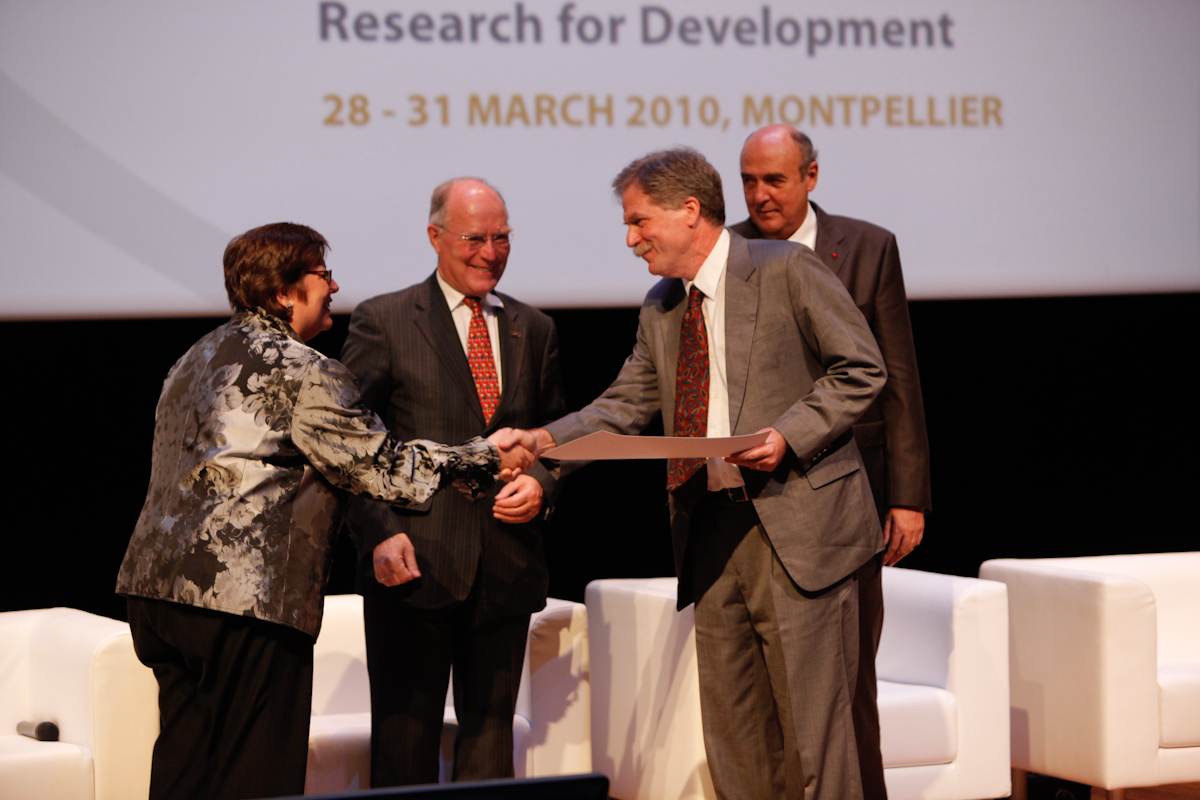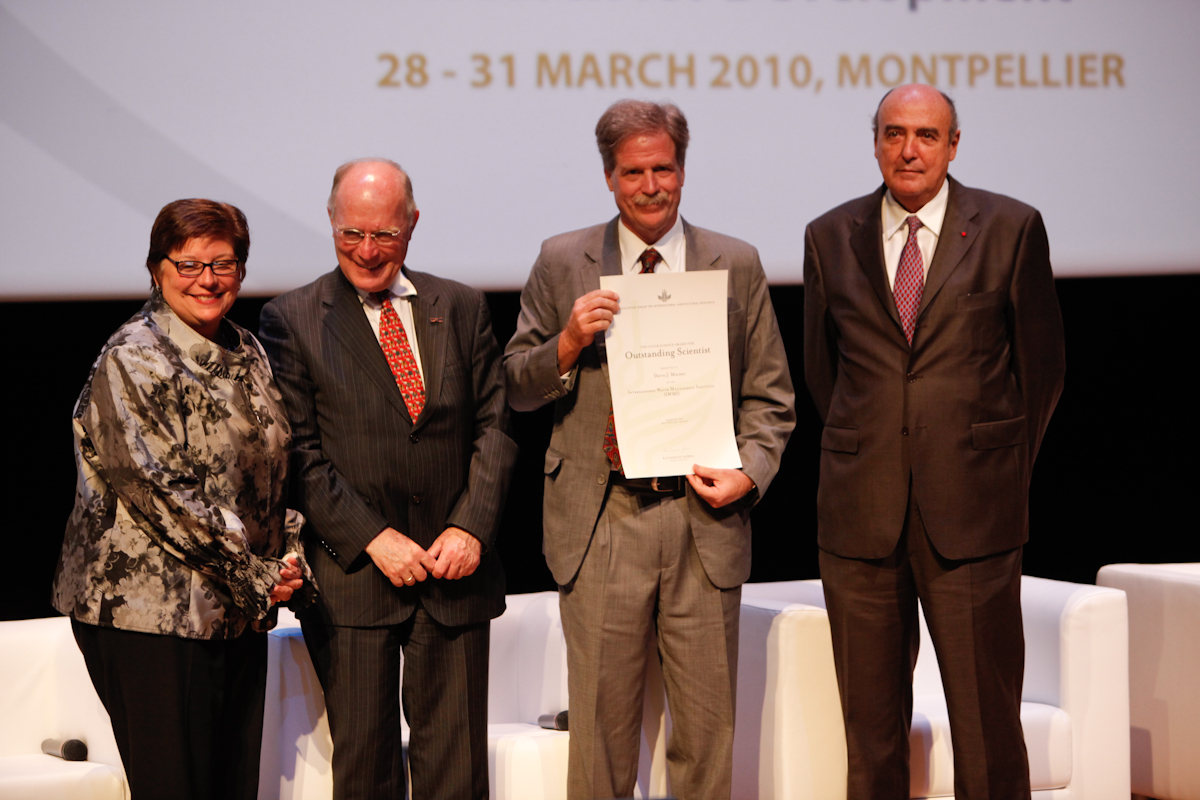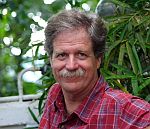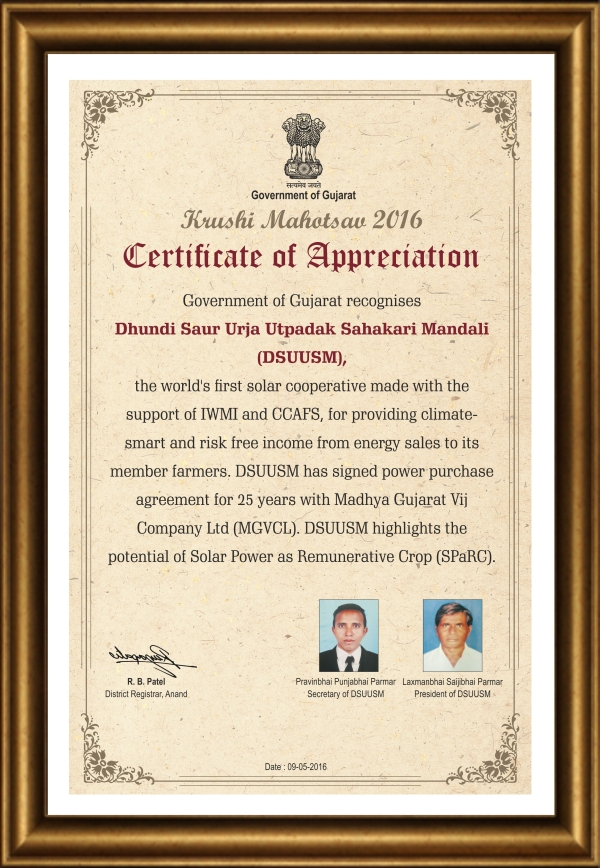
David Molden, winner of the CGIAR award for “Outstanding Scientist of the Year” and Deputy Director General for Research at the International Water Management Institute (IWMI), says that agriculture is both the cause and solution to many of the world’s water problems. Water scarcity is already a constraint to food production in many parts of the world. With today’s production and consumption trends, meeting future food demands will require much more water, making livelihood and environmental problems worse. The solutions lie in tapping the unmet potential to grow more food with limited water, and the greatest potential lies within areas of high poverty.
Only if we act now to improve water use in agriculture will we meet the acute freshwater challenges facing humankind over the coming fifty years. This wake-up call is one of the main messages of the Comprehensive Assessment of Water Management in Agriculture, a five year, first-of-its-kind study led by Molden, in a partnership that engaged over 1,000 researchers and practitioners worldwide. At a time when water scarcity, food security, and climate change are top -agenda items, the findings of Molden and his team are seen as “benchmark research” for water, food, livelihoods and environment.
With the need to adapt to changes in the agricultural landscape, the CGIAR (Consultative Group on International Agricultural Research) itself is undergoing a major change management process, with a shift to wide and seamless partnerships between centers and “mega programs” that address key agriculture issues. The Comprehensive Assessment was a forerunner of this type of global partnership as it drew on the expertise of so many different people from different disciplines and provided a holistic view of past, present and future water challenges and practical recommendations.
Colin Chartres, Director General of IWMI said “We are extremely proud of David’s outstanding achievement. The Comprehensive Assessment provided key policy options for ensuring global food security over the next 50 years. Today, it is a benchmark for researchers trying to grapple with water management issues. The findings of the CA are for everyone. David has been communicating water and food issues outside the agricultural research community and is frequently sought out by the corporate sector for guidance on sustainability issues. In fact, his stamp on the private sector’s involvement in water through the World Economic Forum is quite visible. One of his key achievements was synthesizing the wide range of science outputs of the CA and crystallizing key messages for different audiences like those at the Forum. The transformed CGIAR will benefit from scientists like David Molden, in addressing complex problems through diverse partnerships while maintaining scientific credibility.

At their annual awards ceremony held this year in Montpellier, France, the CGIAR formally acknowledged Molden’ s exemplary leadership of the Comprehensive Assessment along with the many valuable contributions he has made over the years in water productivity and water accounting research. The Group was in Montpellier for the Global Conference on Agricultural Research for Development (G-CARD).
In 2008, IWMI was rated “Outstanding” against World Bank performance assessment indicators. This year the Institute celebrates its 25th anniversary and Molden’ s achievement is a crowning tribute to 25 years of research in water and land resources, and the promise of many more years of robust research ahead.
About David Molden:
 Molden holds a PhD in Civil Engineering from the Colorado State University and has had a long and fruitful career in water research spanning Africa, Asia and the US. He is currently Deputy Director General –Research at IWMI, providing scientific direction for the institute’s researchers working in Africa and Asia. The CA is but one of Molden’s many achievements during the course of his career. He led IWMI’s initiative to develop new paradigms for irrigation and basin water use in the 1990s and his work provided the first operational definition of water productivity, now recognized as an important indicator in water-scarce regions and an organizing principle of the CGIAR Challenge Program on Water and Food. The concepts and indicators Molden developed to assess irrigation performance are still in use today. Over the years his work has expanded to river basin management, water and environment, groundwater and water governance. Molden has mentored many younger CGIAR scientists at IWMI and partner organizations. He is an accomplished public speaker and a prolific writer who has contributed to influential policy making bodies and authored over 150 scientific papers.
Molden holds a PhD in Civil Engineering from the Colorado State University and has had a long and fruitful career in water research spanning Africa, Asia and the US. He is currently Deputy Director General –Research at IWMI, providing scientific direction for the institute’s researchers working in Africa and Asia. The CA is but one of Molden’s many achievements during the course of his career. He led IWMI’s initiative to develop new paradigms for irrigation and basin water use in the 1990s and his work provided the first operational definition of water productivity, now recognized as an important indicator in water-scarce regions and an organizing principle of the CGIAR Challenge Program on Water and Food. The concepts and indicators Molden developed to assess irrigation performance are still in use today. Over the years his work has expanded to river basin management, water and environment, groundwater and water governance. Molden has mentored many younger CGIAR scientists at IWMI and partner organizations. He is an accomplished public speaker and a prolific writer who has contributed to influential policy making bodies and authored over 150 scientific papers.
About the International Water Management Institute (IWMI):
IWMI is a nonprofit, scientific research organization focusing on the sustainable use of water and land resources in agriculture, to benefit poor people in developing countries. IWMI’s mission is “Improving the management of water and land resources for food, livelihoods and the environment .” IWMI has its headquarters in Sri Lanka and regional offices in Africa and Asia. The Institute works in partnership with developing countries, international and national research institutes, universities and other organizations to develop tools and technologies that contribute to poverty reduction as well as food and livelihood security. www.iwmi.org.
About the CGIAR:
The CGIAR, established in 1971, is a strategic partnership of countries, international and regional organizations and private foundations supporting the work of 15 international Centers, of which IWMI is one.. In collaboration with national agricultural research systems, civil society and the private sector, the CGIAR fosters sustainable agricultural growth through high-quality science aimed at benefiting the poor through stronger food security, better human nutrition and health, higher incomes and improved management of natural resources. www.cgiar.org
About the Comprehensive Assessment of Water Management in Agriculture:
The Comprehensive Assessment of Water Management in Agriculture was a five year study that defined key global water problems and sought to identify solutions. It provided insights into current issues of water management, investigated future scenarios, and gave practical recommendations. The Global Water Scarcity Map, a key output of the CA has been the focus of dialogue and development agendas ever since it first came out. Molden was editor of “Water for Food, Water for Life”, the main report of the CA, and lead author of the summary document which is popular with a broad audience ranging from private sector organizations and NGOs to university students. Molden spearheaded the conceptual framework of the assessment and translated key findings into policy relevant messages. The Comprehensive Assessment itself has been used in the World Development Report on Agriculture, the Human Development Report on Water, the IAASTD (International Assessment of Agricultural Knowledge, Science and Technology for Development), documents of the World Economic Forum and the recent McKinsey report, ‘Charting our Water Future’.






